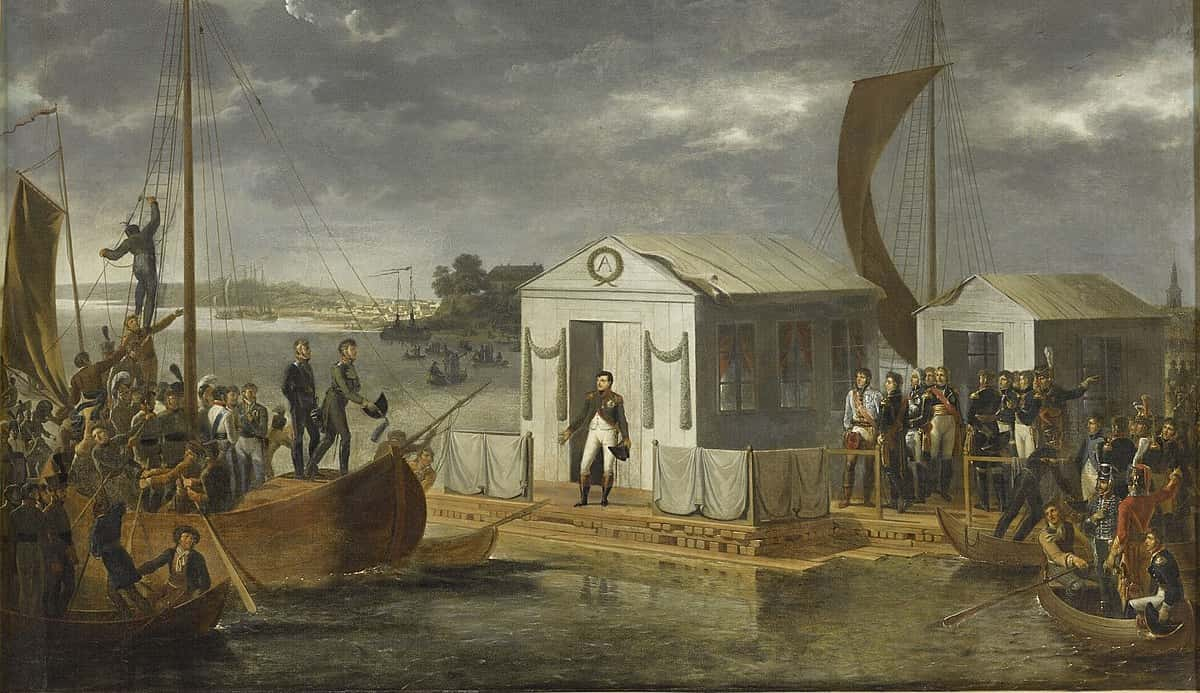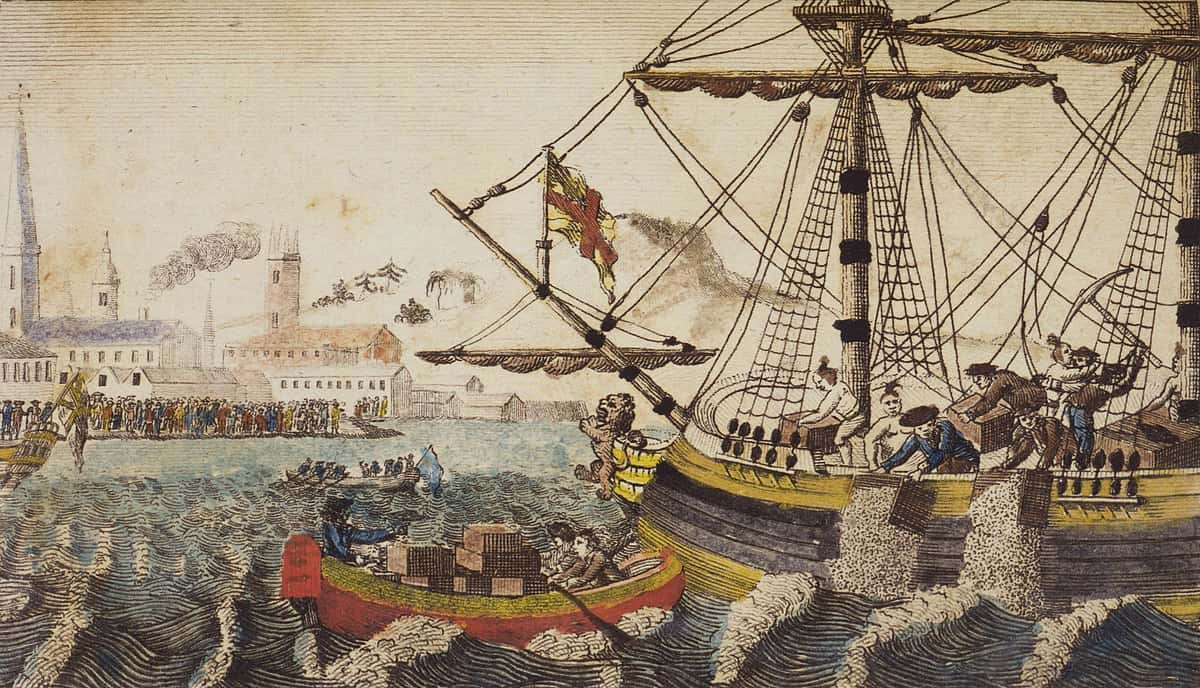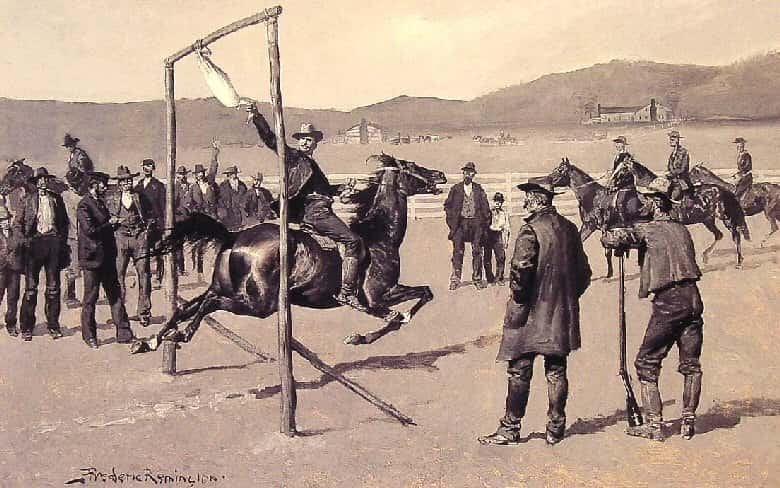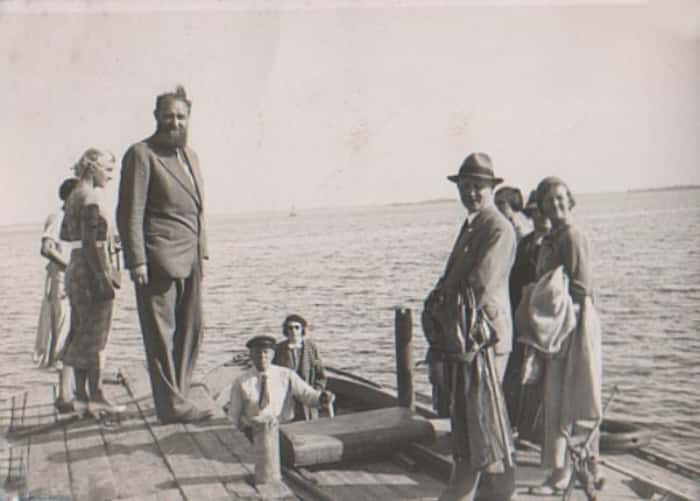"History is a cyclic poem written by time upon the memories of man"—Percy Bysshe Shelley
The world has been around a really long time, and plenty of interesting stuff has happened since people have been on earth. From the successes and failures of important figures to battles, exploration and discovery, history is mysterious, fascinating and illuminating. Below are 42 historical facts to give you some perspective about how we ended up with this crazy world we live in.
History's Most Bizarre Events Facts
42. Depends on the Calendar
Depending on which calendar you look at, George Washington’s birthday might be on two different dates. If you follow the calendar that was in use in the Colonies when he was born, his birthday was officially February 11, 1731. On the other hand, if you go by the Gregorian Calendar (the one in effect today), his birthday was February 22, 1732. I’d have just celebrated both!
Factinate Video of the Day
41. Maintaining Productivity
Everything that’s known about Ancient Egypt points to a pretty advanced thinking society, and healthcare was no exception. Based on texts that were discovered in a village dating back to the New Kingdom period (3,100-3,600 years ago), historians now believe that Egypt had some form of state-supported health care designed to keep their tomb builders productive. The texts included detailed notes about why individual workers were absent, and lo and behold- nearly 1/3 were because the workman was too sick to work. By these accounts, Egyptian workers were treated pretty well. Ration distributions suggested that they had paid sick days, and they and their families were given housing and servants to help them with daily tasks. Sure, building a tomb out of enormous stone slabs was probably pretty grueling work, but in the grand scheme of things, it wasn’t a bad job to have!
40. And Nobody Died!
The longest official war in history was between the Netherlands and the Isles of Scilly (a small group of islands off the tip of Cornwall in Great Britain). It began in 1651 and lasted 335 years with no bloodshed or human losses. The conflict actually began during the second English Civil War, which pitted the Parliamentarians and the Royalists. Since the Dutch and the English were allies, the Dutch felt like they had to choose a side, and they picked the Parliamentarians, who they figured would be the clear winner. It turned out the Dutch underestimated the strength of the Royalist's Navy, who actually put up a good fight, seizing several Dutch ships laden with cargo. In the spring of 1651, Admiral Tromp of the Dutch Navy landed on Scilly, demanding reparations for their losses, and when the English offered none, the Dutch declared war on Scilly. A few weeks later, the Parliamentarians won and the Navy was no longer a threat, but the Dutch forgot all about it and nobody ever officially ended the war. The war probably would have gone on forever if not for a keen historian who investigated and found out that it had technically never ended. On April 17, 1986, the Dutch Ambassador visited Scilly and officially made peace.
39. Three in a Row
There is a popular urban legend that states catastrophes, tragedies and famous deaths occur in threes. Well, John F. Kennedy, Anthony Burgess, Aldous Huxley, and CS Lewis all died on the same day. I wonder what they say about fours?
38. Thanks to the One-Legged Man
When the first escalator in the London Underground was put into service in 1911, people were naturally dubious about its safety. As the story goes, to reassure the people, the Underground’s one-legged em zployee William "Bumper" Harriswas enlisted to ride up and down. I guess the thought was if Bumper could do it than anyone could do it? Not sure I follow the logic, but sure, why not?
37. Colorful Contribution
During the Depression few people could afford to buy new clothes, so they did what any penny pincher would do—they used whatever material they had on hand, which in this case was flour sacks. When flour distributors learned that their sacks were being worn, they started producing more colorful sacks so they’d be more attractive to wear. Who said cheap has to be boring?
 Picryl
Picryl
36. Disney Watercolors
In 2008, four watercolor paintings depicting Pinocchio and three of the Dwarfs from Snow White and the Seven Dwarfs were discovered in Norway, and they were found to have been painted by Adolf Hitler. Why, you may ask, would he choose that subject? Mostly because he had a special interest in Snow White. The story was based on an old German fairy tale and he related it back to his good old-fashioned Aryan stories. Hitler considered the Disney film to be one of the greatest films ever made, and it was one of 50 American films purchased by the German Propaganda Ministry. Before you start thinking that Hitler was a Disney super fan, he totally hated Mickey Mouse and thought he was a “degenerate tap-dancing idiot."
 Flickr
Flickr
35. Shhh! I’m Hunting Wabbits!
After signing the Treaties of Tilsit in 1807, Napoleon naturally wanted to celebrate, and what better way to do that than by organizing a rabbit hunt? He asked his Chief of Staff Alexandre Berthier to set it all up, and according to legend, Berthier went a little overboard in his preparations. Rather than gather up a reasonable number of rabbits for a hunt, like say 30 or 40, he allegedly gathered 3,000. When Napoleon and his hunters were ready, Berthier released the rabbits on the edge of an open grassy field. Rabbits are normally pretty timid creatures, and everybody expected them to flee, but that’s not what ended up happening. The rabbits charged Napoleon and his group, and before long they were swarmed. When it became clear they weren’t letting up, Napoleon retreated. It turned out Berthier had cheated a bit with the rabbits and had picked up tame farm rabbits that had no reason to be afraid of people. As for the rabbits, they almost certainly didn’t mean any harm, but seeing that many rabbits coming at you would definitely be a little startling.
 Wikipedia
Wikipedia
34. Escaping Death
Being trapped under an avalanche is pretty much a death sentence, but in 1929, Arctic explorer Peter Freuchen missed the memo that he should have died and found a gross yet innovative way to free himself: He made a sort of dagger out of his own frozen feces and used it to dig himself out of the snow. He lost several of his fingers, but he made it out alive. You won’t find that in any survival guides!

History's most fascinating stories and darkest secrets, delivered to your inbox daily.
33. Glass Delusion
After suffering a fever and convulsions in 1392, King Charles VI of France began to experience bouts of madness, which would last the rest of his life. One of his most famous delusions was the "glass delusion," in which he believed that his body was made of glass. Fearing that his glass body would break, the normally athletic king would refuse to move and would sit still for hours on end. It’s a wonder he didn’t die of boredom!
32. The Worst Kind of Death
Unless they’re a vampire, most people don’t see the inside of a coffin while they’re alive, but during the Middle Ages coffin torture was a popular method of torture and execution. The victim was stripped naked and shoved inside a metal cage shaped like a human body, or a coffin. It was even worse for overweight people who were frequently stuck inside a smaller coffin to make it more uncomfortable. The cage was then hung from a tree gallows or city walls. If the crime was something really bad like murder, the victim was left inside the coffin to die of thirst, hunger, or hypothermia. Once they were dead, birds and insects would eat the body, leaving only the bones dangling in the morbid cage. Sucks for the victim, but it must have been effective in keeping crime rates low!
31. Sticky Tsunami
The Boston Tea Party is usually taught in American History 101, but less famous is the Boston Toffee-Apple Tsunami. On January 15, 1919, a 90-foot wide cast-iron tank carrying 2.5 million gallons of crude molasses for rum exploded, likely due to a sudden rise in temperature the night before, which would have caused the molasses to expand. What resulted was a wall of molasses as high as 15 feet traveling at speeds of 35 mph through the city of Boston. The sticky tsunami destroyed buildings, carried of vehicles, and drowned people and horses. In total, 21 people were killed and 150 people were injured, arriving at the hospital looking, as witnesses described them, like toffee apples. It took weeks for the city to clean up the mess, and people swore they could still smell molasses in the air during hot weather for years afterward.
 Wikipedia
Wikipedia
30. No Dogs Allowed!
George Gordon Byron, otherwise known as Lord Byron, was famous for his love of animals (among other things). His favorite pet was his Newfoundland dog Boatswain, but because of a no dogs rule at the University of Cambridge, Byron was unable to keep him at school. As a way of getting back at the college for what he perceived as an unfair rule, he brought a tame bear with him instead. The College, as you can imagine took issue with Byron’s pet, but since there was nothing in the college statutes about pet bears, they couldn’t do anything about it. Byron treated the bear just like a dog, walking it on a chain, and talking to it. While it’s unknown exactly how or where he got the bear, when he finished school he took it back to his London Estate.
29. Sinister Individuals
Until just the last few decades, being left-handed (or admitting to being so) was not a good thing. The devil was believed to be left-handed and evil spirits were raised using left-handed gestures. In the Middle Ages, a leftie was also in danger of being branded a witch, which is definitely not helpful for staying alive. Ancient Romans also had some thoughts about being left-handed, and they are said to have originated the custom of shaking hands with the right, so as to prove that neither party had any hidden weapons on their person.
28. Incoming!
With the invention of e-mail and cloud technology, fax machines seem pretty antiquated, but believe it or not, the ability to send an image over a wire predates the telephone! Between 1843-1846, Alexander Bain, the inventor of the fax, or facsimile machine, worked on a machine that could motion scan a message line-by-line, as well as images (though they were pretty poor quality). Throughout the rest of the 1800s and early 1900s other people improved upon Bain’s original invention, and by the late 1980s, the fax-machine was in widespread use.
27. Where the Bodies are Buried
In the late 18th century, due to high death rates, the city of Paris was running out of room in their cemeteries to bury the bodies and not all of them were buried properly, which spread disease and was just generally unpleasant. Not having any better ideas, city officials condemned the cemeteries and moved the remains to the city’s underground quarries. Between the 1780s and 1814, more than six million bodies were taken from the graveyards throughout Paris and were transported in carts to the catacombs. Creepy!
 Shutterstock
Shutterstock
26.Twisted Indulgence
When Emperor Tiberius’s son died, he understandably went kind of nuts. He put his Praetorian captain Sejanus in charge of running Rome, and then he truly went off the rails. He built a dozen villas on the island of Capri and filled them with dungeons, torture chambers and places of execution. The libraries were filled with erotic fiction, and he organized huge orgies with both sexes. He also refused to allow anybody but members of his court on the island, and if you were the poor fisherman who accidentally landed on the island or fished within spitting distance of it, let’s just say it was not going to end well for you!
25. Funeral for a Limb
General Antonio López de Santa Anna of Mexico led the Mexican forces during the Mexican-American War, but was forced to retire after losing badly to Texan Revolutionaries. Fast forward to 1838, and Mexico found itself in hot water again, this time with France. They owed a debt to France which they refused to pay, so France sent troops to Mexico to teach them a lesson. Mexico brought López out of retirement to fight, and during the battle his leg was hit by French cannon fire. With medicine being what it was at the time, the doctors were forced to amputate his leg. But López had a serious attachment to his leg and couldn’t just let it go. Four years after the battle, he dug it up and gave it a funeral with full military honors. To make things even weirder, not one, but two of his false legs were later captured by American forces, with one troop allegedly using one as a baseball bat!
 Wikimedia.Commons
Wikimedia.Commons
24. Senior Legal Age
If you think that not being legally allowed to drink until age 21 is already a long wait, you should have tried being an Aztec. Alcohol consumption was forbidden throughout the Empire until age 70, after which you were free to drink as much as you like. Considering that the average life expectancy of an Aztec was 25 years, chances are you wouldn’t have lived long enough to reach legal age.
 Flickr
Flickr
23. Storing Your Money
Growing up, most children have had a pig-shaped piggy bank at one time or another, but while piggy banks have existed since around 330 BC (applied to any jar/dish that stored money), they didn't always look like pigs. In fact, that only came around because the orange clay that was frequently used to make these jars was called pygg. Eventually, some clever potters acknowledged the homonymity of the two words and made pygg jars in the shape of pigs.
22. I think the Dead Guy Won!
In 1932, a jockey by the name of Frank Hayes managed to win a horse race at Belmont Park in New York despite the fact that he was dead. Sometime around the middle of the race the poor guy suffered a fatal heart-attack, but somehow the horse kept going, and his body managed to stay in the saddle until after he’d crossed the finish line. Funnily enough, the odds makers paid out 20-1 as an outsider victory.
 Pexels
Pexels
21. Squeezed like a sausage
It turned out that the sarcophagus of King William I (AKA William the Conqueror) was built too small for his body, and rather than build another one, they simply tried to squeeze his body into it. If you consider what often tends to happen when you try to squeeze into something that’s way too small, you can imagine how this worked out. Due to the build up of gases in his stomach, his bowels ended up bursting at his funeral and created an unbearable stench that probably would have felled a horse!
 Wikimedia.Commons
Wikimedia.Commons
20. Republican vs. the Hulk
A little-known fact about Abraham Lincoln is that he was once a wrestler. In fact, not only did he wrestle, but he was actually pretty good at it! A large man, he was exceptionally good at feats of strength, endurance and agility, and while he wasn’t quite as ostentatious as the pro-wrestlers of today, one particular match against a local bully became part of the Lincoln Lore.
19. Blink and You’ll Miss it!
Most wars seem to drag on for years (or even centuries), but the Anglo-Zanzibar War has the distinction of being the shortest war in history, lasting only 38 minutes. The Heligoland-Zanzibar Treaty between Britain and Germany in 1890 gave the Brits control over Zanzibar, and they put their own Sultan in place to rule it for them. Three years later, the sultan mysteriously died, and his cousin Khalid bin Barghash swooped in to take his place. The Brits weren’t exactly pleased by this turn of events, and when Khalid refused to stand down, British ships were ordered to bombard the palace. Two minutes after the war began, Khalid is said to have escaped through a back exit. Another 36 minutes after that, the shelling had stopped and the war was over.
18. Holy Goat
During the crusades of the Middle Ages, the German crusader Emicho of the Rhineland encouraged his army to follow a holy goat and a holy goose on the belief that the animals would lead them all to the holy land. Needless to say, they didn’t make it.
17. Miscalibration of Ability
During the American Civil War, General John Sedgewick died most likely regretting his final words. While leading the Battle of Spotsylvania Court House, he walked into the middle of heavy gunfire while telling his fellow soldiers to stop baulking because “They couldn’t hit an elephant at this distance.” Well guess what? They could do even better! Shortly after that exhibition of overconfidence, he was shot dead by a sniper who hit him in the left side of his face.
 Wikipedia
Wikipedia
16. Roland the Farting Jester
Roland the Farter was the court minstrel to King Henry II and his single job at court is what earned him the nickname. Every Christmas, during the court’s pageant, he was instructed to do a dance that ended with a jump, a whistle and a fart, all at the same time. Don’t feel too sorry for him though. As a reward for his service, he was given a manor house in Hemingstone, Suffolk and 100+ acres of land. Not a bad trade off if you think about it.
15. The Original Pee Test
Beginning with Hippocrates in Ancient Greece, doctors used to diagnose illnesses by smelling, tasting, and observing the color of their patients’ urine. To help them out, they used a handy-dandy chart known as the urine wheel, which contained 20 potential colors of urine. He also supposedly sampled his patients' puss and ear wax and tasted their stools, which by today’s standards seems totally quackers.
14. A Viking Con
The Vikings were a pretty clever bunch, and they were well-aware of the Western-European belief in the existence of unicorns and the properties of their horns. When Erik the Red and his crew settled Greenland, they encountered a narwhal—a whale with one enormous canine tooth that protrudes from their mouth as a large tusk. Well, being as enterprising as they were clever, the Vikings decided to start selling narwhal tusks as unicorn horns, and sold them at extremely high prices to merchants and princes throughout Europe. Amazingly, it took another 500 years before any other explorers reached Greenland, so they were able to keep the con going for that entire length of time.
 Pixabay
Pixabay
13. The Crazy Queen
Queens throughout history have faced enormous pressure to deliver a male heir, but when Queen Maria Elenora of Sweden failed to accomplish this task, she completely lost it and repeatedly tried to kill her daughter. From the moment Christina was born, her mother rejected her and called her a monster, and at least a few times, she tried to kill her by pushing her down stairs or by dropping her. When her husband died, she lost whatever marbles she might have had left. She refused to bury the body, and she slept beneath a hanging casket that held his heart.
12. Perpetually Leaning
Construction began on the Leaning Tower of Pisa in 1173, but when the foundation started to settle unevenly in 1178, work on the tower stopped. It only picked up again 100 years later, but by that time, the tower was already leaning, and since then, it has never been straight.
11. Strike a Match, Go to Jail
In 1908, a woman was arrested for violating the Sullivan Act—a New York City law that banned women from smoking in public—just one day after it was passed. When she appeared in court, she told the judge that she had as much right to smoke as anyone else, and she let him know exactly what she thought of this ridiculous new law. Two weeks later, the city’s mayor vetoed the law, and women could once again light up on city streets to their heart’s content.
10. Post Mortem Photography
In the Victorian Era, photographing a loved one after they died was a common practice. Even the Victorians seemed to realize how creepy a photograph of a dead body could be, so in order to make the deceased look more lifelike, they would pose people with their favorite things (such as a beloved pet), or simply try to make it look like they were sleeping. Doing this today would be super weird and totally unheard of, but back then, the pictures were meant to be a memento of your dead loved-one.
 Wikipedia
Wikipedia
9. Call the Carpenter!
If you’re a passenger or crewman on a Georgian pirate ship, you’d better pray that you don’t need a limb amputated (This was more common than you’d think). Since these ships seldom sailed with a qualified doctor on board (they were pirates after all), if you needed an arm or a leg removed, the carpenter would be called to do it since with his saw. I'll never look at a peg leg the same way again!
8. Grab the Goose
Between the 17th and 19th centuries, Goose Pulling was a sport played in parts of the Netherlands, Belgium, England and North America. A goose would be hung by the legs from a pole or a rope stretched across the road, and a man on horseback would attempt to grab the bird and pull its head off. Whoever got the head was declared the winner, and the prize would be a round of drinks, money, or sometimes the goose itself. In the old days, to make the sport more challenging, a live goose would be used, and the neck oiled to make it more difficult to grab. Today, the sport is still practiced in parts of Belgium and the Netherlands on Shrove Tuesday, but without the live goose.
 Wikipedia
Wikipedia
7. Death of Good Manners
The 16th century astronomer Tycho Brahe made huge contributions to his field during his lifetime, mapping the position of several stars and figuring out the real nature of comets. His death sadly was not due to illness or foul play as had originally been suspected, but from a burst bladder. Apparently, the poor man had been raised to believe that it was impolite to leave a banquet table to relieve himself, so he held his bladder until it burst and died eleven days later.
6. Covering Up
It’s not exactly known when people first started wearing clothing, but the why is easy to figure out. As people migrated to different climates, they needed to find a way to protect their bodies from the elements such as heat and cold. Anthropologists estimate that clothes were invented around 100,000-500,000 years ago, and were made from natural elements such as furs, grasses, leaves and bones using an ancient form of sewing.
5. Common Grounds for Divorce
During the Renaissance era, ending a marriage wasn’t the easiest thing to do, but there was one legal reason that will probably surprise you—impotence! Because the purpose of marriage in those days was basically to reproduce, if a man couldn’t get it up, so to speak, his wife could take him to court for failing to fulfill his part of the bargain. Further adding to the humiliation, pretty much the only way to prove it was by allowing the court inside the bedroom while a couple was having sex, with only a paper screen dividing them. When the deed was over, the court would strip both parties and check first for fraud, and then for evidence. Proving that the marriage was never consummated was still a woman's best bet for divorce, but that involved some pretty intrusive and embarrassing tests for her as well, so her husband have to be pretty awful to go through all of that.
4. A Canine Society
During the 17th century, the Freemasons appeared in England and welcomed people of all religions. This greatly displeased Pope Clement XII, who issued a papal bull banning Catholics from joining. Punishment for breaking this law was excommunication, so it wasn’t advised. However, some Roman Catholics still wanted their own society, so they secretly founded the Mops-Orden, or the Order of the Pug. New initiates had to wear dog collars and scratch at the door to enter. After this, they were blindfolded and led around the room where members would bark at them. Lastly, in true doggy fashion, they had to kiss the butt of the porcelain pug, which was an expression of their devotion to the society. Respect the Pug!
3. Sir Butt Wiper
King Henry VIII had servants called “Grooms of the Stool” whose literal job was to wipe his butt after he’d gone to the bathroom. Four unlucky saps had this position during his reign, but on the bright side, they were all knighted. In fact, the intense "intimacy" of this position saw several Grooms of the Stool gain great political influence, as only the most trusted advisors would be given such a... ahem... delicate task.
2. Homage to a Corpse
In the 14th century, Dom Pedro, the heir to the Portugese throne, fell in love with and married Ines de Castro, who was the illegitimate grandchild of King Sancho IV of Castile. Unfortunately for Pedro, his father disapproved of the marriage and had her banished to live in exile in the castle of Albuquerque. Eventually, Pedro was able to marry her, and all was peachy keen for a while, until his father, acting upon advice from his nobles, ordered her killed to prevent future wars between Portugal and Castille. When Pedro ascended to the throne, the first thing he did was order his wife’s killers found and brought to him for execution. He had them killed out by ripping out their hearts while they were still alive, so they could feel the same pain he felt. He then exhumed his wife’s body, placed her on a throne, and forced his entire kingdom to bow before her corpse and kiss her hand. Creepy, but touching!
 Wikipedia
Wikipedia
1. Infamous Lady
Countess Elizabeth Báthory of Hungary was nicknamed the Bloody Countess for being the world’s worst female serial killer. She was believed to have bathed in the blood of the hundreds of servant girls she tortured and killed, and was reputed to be a vampire, a lesbian and a witch. The main reason she would have gotten away with it for as long as she did was because of her wealth, and the fact that even the king apparently owed her money. In 1610, Báthory was arrested along with her favorite servants and intimates, who were thought to be accomplices to her crimes. Most of them were put to death, but because of her family’s social standing, Báthory herself couldn’t be executed. Instead, she was locked up in a room with walled up windows inside Čachtice Castle where she remained until her death in 1614. Her story is so infamous she is even said to have been one of the inspirations for Bram Stoker’s famous work Dracula.
Sources: 1, 2, 3, 4, 5, 6, 7, 8, 9, 10, 11, 12, 13, 14, 15, 16, 17, 18, 19, 20, 21, 22, 23, 24, 25, 26, 27, 28, 29, 30, 31, 32, 33, 34, 35, 36, 37, 38, 39, 40, 41, 42, 43






































